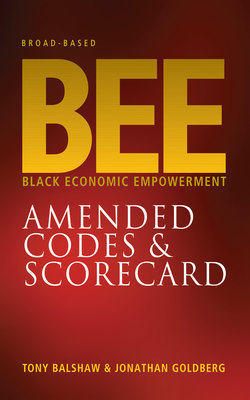Читать книгу Broad-Based BEE - Jonathan Goldberg - Страница 33
На сайте Литреса книга снята с продажи.
UBUNTU – THE AFROCENTRIC WORLDVIEW
ОглавлениеIn every transforming society the content of the environment that transformation takes place in needs to be looked at. In this regard the concept of ubuntu needs closer evaluation.
The essence of ubuntu (humanity) is based on the premise that one can be respected only because of one’s cordial co-existence with others. The impact of new shareholders and other identified stakeholders (boards of directors, managers, employees, clients, creditors, government, community) will clearly impact on how the incumbent shareholders interact with individuals and groups who have a direct or indirect interest in the company, including society as a whole.
The move from the single to the so-called triple bottom line embraces the notion that a business cannot account for profitability alone. In essence, a business should not relate its raison d’être to the profit (economic) aspect alone but also to the people (i.e. society) and planet (i.e. environmental) aspects.
Ubuntu is an African belief of life and view of the world. In essence it translates into “I am because we are” and is manifest in a slogan “an injury to one is an injury to all”. The Xhosa proverb Iyandla Yiyahlambana is translated to mean “the hands wash each other”. In other words, people are interdependent; without one other we can’t survive. In the culture of the Xhosa people, according to law professor George Devenish, everything and everyone belonged, in principle, to the chief. On the face of it, he possessed unlimited power and was able to impose any tyranny he wished. In reality, the situation was vastly different.
The chief was indeed accountable and his power was subject to checks and balances. This arose from the lack of any central apparatus through which absolute control could be exercised. An important safeguard against the abuse of power by the chief was the influence of his group of councillors, the amapakati or middle ones. The chief governed on their advice.
Although he was head of the council, whether this applied to a chiefdom or a nation, he dared not veto a decision of his court except at the peril of his reputation and authority. Ubuntu-style management is a departure from hierarchically structured management and introduces a co-operative and supportive form of management in which the collective solidarity of groups is respected and enhanced.
It is a social survival technique that developed from socioeconomic and demographic circumstances in which African people had to co-operate in order to survive.
In creating a truly South African approach to broad-based BEE, society’s broader objectives need to be balanced against economic efficiency. It is necessary to recognise the diversity that exists in relation to culture, religion, ethnicity and other elements. The following “Afrocentric” worldview and cultural perspective has been adapted from an article written by Mr Shepherd Shonhiwa which appeared in The Institute of Directors King II Report:
•Prizing spiritual “collectiveness” over the individual good. There is a communal way of life, where households live in an enmeshed interdependent neighbourhood. The “Eurocentric” way tends towards being disengaged.
•An inclination toward consensus rather than dissension. Humility and helpfulness are more important than criticism.
•Being non-discriminating and non-prejudicial, embracing reconciliation, as we have seen dramatically at a political level in South Africa and more benignly at a business level.
•Fostering co-existence with others.
•Inherently trusting and believing in the fairness of all human beings; a predisposition to universal brotherhood.
•Observing close kinship through clan names and the extended family. Xhosa-speaking people will speak of their cousin-sister or cousin-brother.
•Hierarchical political ideology, which is based on an inclusive system of consultation at all levels. This has been evident in labour relations and people management practices.
•Perpetual optimism due to a strong belief in the all-knowing, omnipotent “creator of mankind”.
It is important to understand the above cultural beliefs and openly recognise their worth and role in the process of engaging future partners and stakeholders. One of the biggest problems in implementing broad-based BEE-driven transformation has been the mismatch of parties’ expectations in terms of who does what and what each party gets out. Exceptions need to be acted upon within the context of a shared vision and objectively measured against consequences, and corrective action taken at the appropriate time and level.
“If you treat an individual as if he were what he ought to be and could be, he will become what he ought to be and could be.” – Goethe
